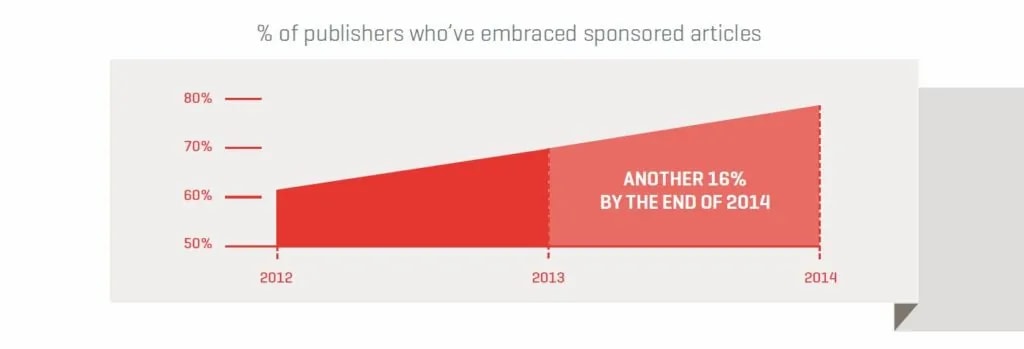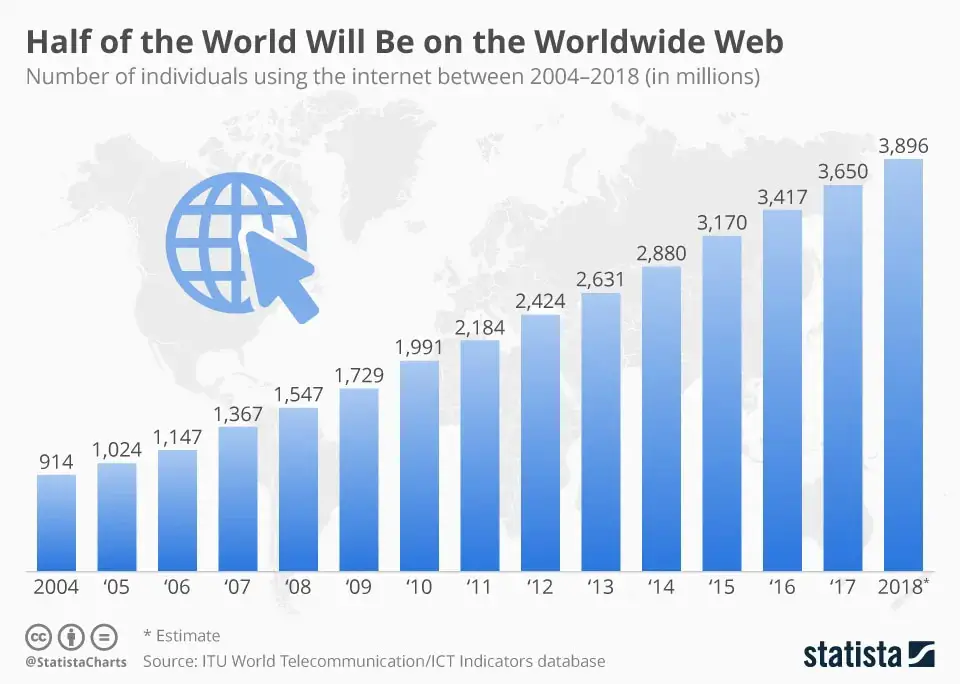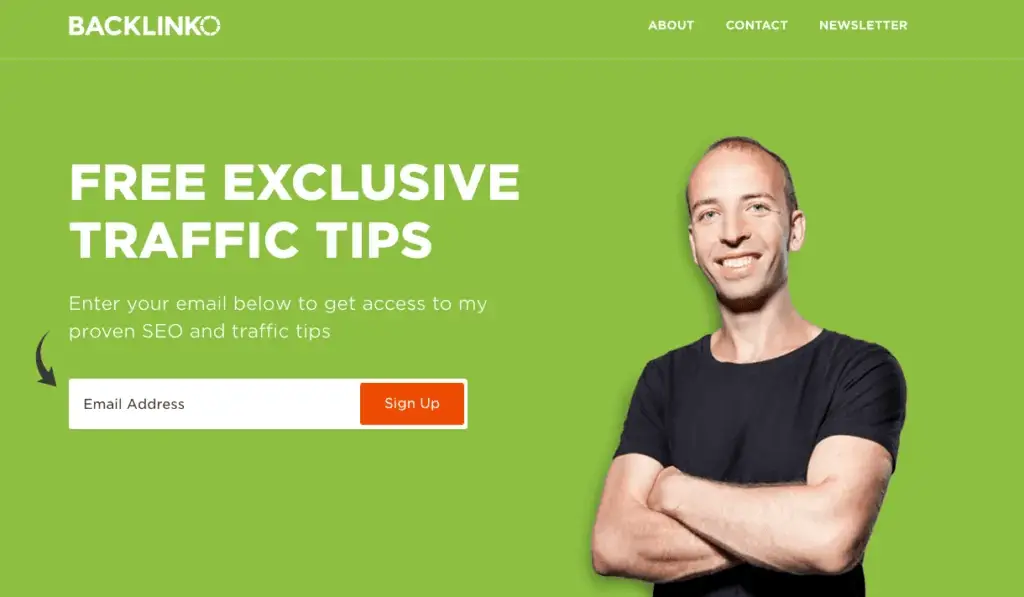
Be A Successful Online Publisher In 2019 Using Tips From Popular Sites

Get helpful updates in your inbox
Be A Successful Online Publisher In 2019 Using Tips From These Sites
The digital ecosystem is constantly changing and we often talk about the growing complexity of all the different disciplines online publishers have to master to keep up. Some sites, brands, and content creators have been around since Google was a fledgling start-up, while others face the struggle of launching a new property today. No matter what type of online publisher you are — or work for — there is one core attribute that is paramount to long-term success.
Learning. That’s why these clever strategies are often copied.
Websites of all sizes and age have their struggles and strategies as they have developed and attempted to stay relevant. Learning from what other sites have done, and what other publishers have done to cripple their businesses, can offer untold benefits when navigating annual strategies.
Online publishers from all over the country attended our publishing event, Pubtelligence, hosted at Google in New York in March of 2019, gaining insight, news, and tips about the digital publishing sphere. I sat down with a variety of publishers during breaks to ask them their websites’ stories and what emerging strategies and opportunities in digital publishing they’re keeping their eyes on.
Interviewees included Bob Carr and Ronni Newton of We-Ha.com; Robert Diamond of BroadWayWorld.com; Yoann Bierling of YBierling.com; Karen Carr of Quatr.us; and Ivana Taylor of DIYMarketers.com. You can watch the entirety of some of their interviews in the embedded playlist, or read a summary of my extended conversations with them in the text below.
What is an online publisher in 2019?
In 2019, an online publisher is just about any website, blog, social media profile, or content creator that distributes and shares content digitally. It is an incredibly broad category that incorporates everyone from parents with a small blog or YouTube channel they manage in their spare time to institutions that have been around for centuries, like The Guardian.
When we asked we this diverse group of online publishing founders and executives this question, most of them agreed that part of what makes it hard to manage a publishing business is just how broad the market definition can be.

Things like business loans, working capital, cash flow, and industry benchmarks can be very hard to pin down because of the differences in all of the different types of content creators that exist in the space.
One of the founders of a successful portfolio of sites mentioned that even with over $500k in profit in 2017 that they still struggled to get a business load for expansion in 2018.
“Explaining to the bank that we profit from online content was extremely difficult. Even as we showed them statements and earnings reports, they struggled to comprehend exactly what we were doing. It was maddening.” — Publisher interviewed at Pubtelligence
“What are the biggest challenges for online publishers in 2019?”
For DIYMarketers.com (launched in 2008) competition has been the biggest challenge they’ve faced.
“When we started, a lot of small businesses didn’t know that there are low-cost marketing tools out there to help them,” said Ivana Taylor, founder of the site. “Moo.com for business cards, aweber.com for email marketing — that was the original premise of the website, that we were going to show what’s out there and teach them about the tools. Now, these tools are all over the place, and the problem for publishers now is they don’t know which tool to choose.” – Ivana Taylor, DIYMarketers.com founder

Quatr.us, a study guide website, has been around since the beginning of the web as we know it today, and also struggles with traffic competition. When they first launched the website on Netscape 1.0 (Netscape ended on version 9.0 in 2007), getting lucky as an online publisher was very easy and the market was unsaturated.
Now, with sites like SparkNotes and StudyGuideZone, the competition is greater than ever.
“We try to stay ahead of the curve and develop into more of a niche market, rather than be everything to everybody,” said Karen Carr, founder of the website.
More tips on developing and growing quickly within a niche here.
Organic web traffic is a growing challenge
Many online publishers would agree competition for website traffic is fundamentally one of the most important challenges to have a good strategy for, especially if a site or property is new or not as established as other publishers in the same niche. Competition for organic, search engine traffic grows each day. Now, publishers even have to compete with Google for common topics that can be answered inside Google’s Knowledge Graph.
For a writing guide on how to maximize the efforts of writers, check out this SEO writing outline.
The biggest challenge may ultimately be getting people to find a site or brand initially. For five-year-old site We-ha.com, an established news publisher in Western Hartford, Connecticut, getting traffic to the site to start with was initially difficult, but now it’s expanding their audience that has proven to be the hardest puzzle to solve.
“Initially, it was difficult to get people to find the site and our content. Now, the challenge is getting a different audience to look at the site,” said Ronni Newton, co-founder of the site.
Often, for publishers that have established initial traffic, the real difficulty comes in expanding beyond some longtail keyword niches. Here are some of the ways publishers mentioned they had done this…
- Created translations of popular content (older content with good page authority)
- Developed a PWA to keep more return visitors
- Launched newsletters and podcasts to stay in touch and expand on other platforms
- Invested in more writers while putting an editorial chief in place with SEO knowledge
- Created more content like their top earning content so that they could double content creation efforts
- Shared and re-published articles on other platforms that were appealing but didn’t include keywords that produced traffic
“We now have translation software, are working on an app, and are exploring other ways to attract a younger audience. Our current audience is about 35-55 years old,” Newton said.
“What should online publishers prioritize in 2019?”
All of the publishers interviewed had slightly different takes on what popular websites should be focusing on in 2019, but a theme that stood out among all of them was a focus on the audience itself. As more publishers compete for space in search results, the content itself will remain the primary differentiator. Despite the changes in Google’s algorithm, publishers can always market great content through other mediums. Publishers with good content will always have a distinct advantage.
Here’s what else they had to say…
Ivana from DIYMarketers: Drive traffic while also increasing visitor engagement.
That’s really really important, because aside from ad revenue, the way DIYMarketers makes money is through sponsored content with big brands and one of the things that big brands want to do is engage with micro-influencers. So, if I can create content that is associated with a great user experience and has them coming back for more, the sponsors will be happy, my ad revenue will be happy; it’s a win-win situation.

Bob Carr and Ronni Newton from We-Ha.com: Generate high-quality content and expand beyond your niche.
We have some really loyal readers but there’s only so many people in our geographical area that care about some aspects of our content. That’s the problem with niche publishing.
Now, we’re expanding into more of a faith-based concentration for some of our content as well to go beyond our geographical area.
Another thing we’ve done in the last year, we have a part-time writer handles that sports high school sports. It’s an area with multiple schools and universities and opens up a pocket of new audiences we didn’t have before. While it may be small, it has ROI.

Robert Diamond from BroadwayWorld.com: Use data more intelligently.
So, we’re all kind of overwhelmed with too much data. This year, I think — or hope — we’ve gotten better with looking at how do we grow regionally in other places, how do we grow our core audience of Broadway fans, how do we grow on email?
What are the most valuable visitor types? We cover everything Theatre in live entertainment, so it’s trying to sort of stay true to our core beliefs, not necessarily to chase sort of like other cheap celebrity traffic or other things that wouldn’t be core to our mission or core our readers. However, we want to be more dynamic about what we cover and how in-depth we might go with some topics.
“Where do you go to stay ahead of publishing trends?”
Obviously, we are sharing the advice of publishers here, but we were curious about where these experts go to stay ahead of trends for themselves and those that work for them.

Ivana: I’m not an SEO expert by any stretch and I don’t know if other folks have mentioned this, but one of my favorite resources for SEO information is Backlinko, Brian Dean. He’s outstanding. I just love his content, it’s super useful, and every time you hear it you’re like oh I can do that. Another one for content marketing.
Karen: I get a lot of it from Ezoic, I think you all are really on top of things. Google also generally up-to-date information if you know how to interpret their advice.
Robert: Digiday is a good place for trends. I’m also an avid reader of the Ezoic blogs and listener of their podcast as well. The SEMRushes and the Moz’s of the world are established and safe to trust as well. As search sites like that always trying to find consensus from intelligent people, not just “oh I heard this from my third cousin that this worked on this site”. We try to listen to intelligent people/organizations that won’t lead you to do something stupid on a whim.
“What is the most complex thing about being an online publisher in 2019?”
Ivana: Site structure and architecture because you could write great content all day long — and believe me I have — but if you don’t have the right structure it might get buried.
Karen: I think AMP is something that everybody really needs to start looking at more seriously. Even though I know a lot of people have bad experiences.
Yoann: The switch to mobile visitors is a big deal. I think a lot of publishers still have a desktop view of the world.
Robert: I think the biggest risk is sort of chasing after cheap, short-term trends; as opposed to focusing on almost like a brick-and-mortar business of getting more people to become regular customers. So, I think the biggest risk is veering off course and moving away from what makes your content engaging to your audience. It can be easy to make yourself a commodity.
Bob & Ronni: Where and when people might be searching for content and how they might find a site from anywhere in the world. A potentially high revenue article could be a piece of content that ranks highly for something popular in Australia in 3 years. Understanding how to measure this ahead of time is difficult.
“What is good advice for online publishers of all shapes and sizes?”
Bob from We-Ha finished the chat with a nice piece of advice for all publishers.

This is a constantly changing environment; what we did four and a half years ago we can’t do today. We have to constantly keep changing how the site is viewed by the outside world.
I think often think publishers easily forget who their audience is when trying to generate revenue. I might feel that it’s important to have certain articles on the site just from a standpoint of its information people should know, but ultimately, I need to find a way to combine my audience’s interests with what data is telling us about what they’re engaging with and where we have new opportunities to find these types of audiences. – Bob, Publisher of We-Ha.com
Have something to add? Interested in diving deeper into the advice above. Share your thoughts below.

Tyler is an award-winning digital marketer, founder of Pubtelligence, CMO of Ezoic, SEO speaker, successful start-up founder, and well-known publishing industry personality.
Featured Content
Checkout this popular and trending content

Ranking In Universal Search Results: Video Is The Secret
See how Flickify can become the ultimate SEO hack for sites missing out on rankings because of a lack of video.
Announcement

Ezoic Edge: The Fastest Way To Load Pages. Period.
Ezoic announces an industry-first edge content delivery network for websites and creators; bringing the fastest pages on the web to Ezoic publishers.
Launch

Ezoic Unveils New Enterprise Program: Empowering Creators to Scale and Succeed
Ezoic recently announced a higher level designed for publishers that have reached that ultimate stage of growth. See what it means for Ezoic users.
Announcement
